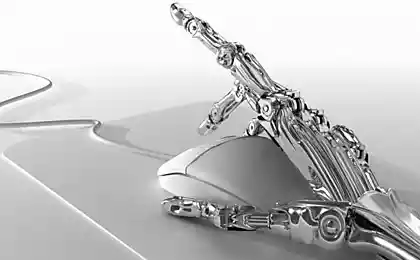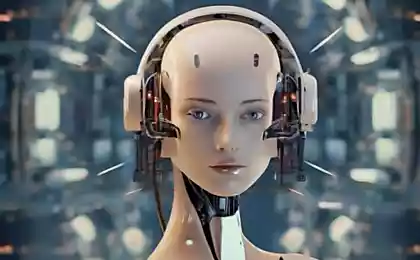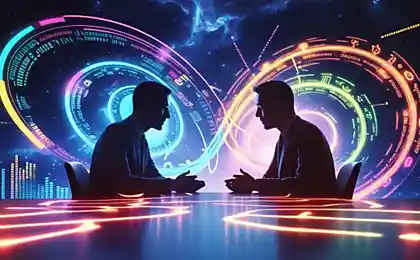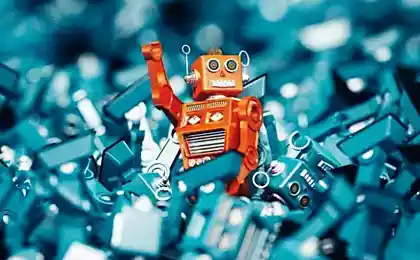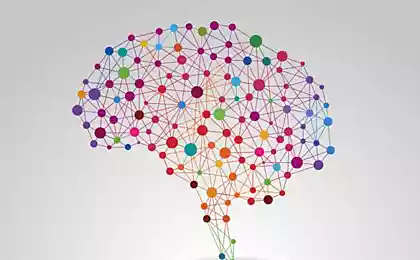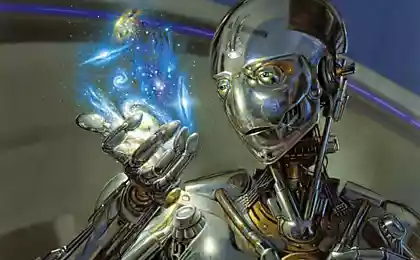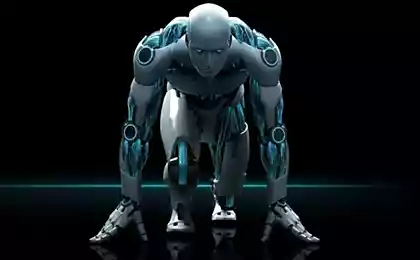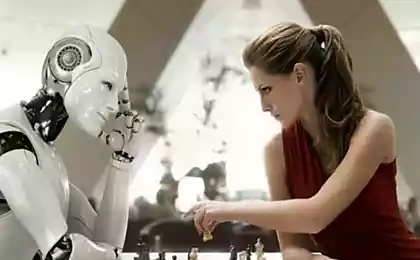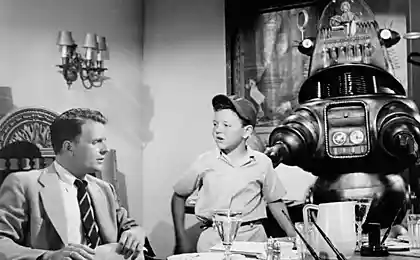707
Strange loops can be an argument in favor of the possible existence of artificial intelligence
Philosophical theory proves that it can be sozdat
Strange loops mean a lot of things - musical tones, math problems or linguistic puzzles. They may also be a biological phenomenon, and that this phenomenon can be realized in the form of computer code, or silicon chip. And the associated theory can prove that artificial intelligence is possible.
What is strange loop? Imagine a trip on a circle: you leave from a point A and go back to it the same - a vicious circle. Strange loops a bit more complicated - they form a kind of a set of instructions, ordered hierarchy, you ascended higher and higher, until you finally do not go back to the top.

Strange Loop Douglas Hofstadter was first described in the book "I - a strange loop." They can be simple or complex, but always depends on what Hofstadter calls "tangled hierarchy." Rather than a linear progression of these hierarchies are balanced on each other, together they cover a set of rules because of which there are two equal ways to treat the problem.
A good example are the three-dimensional image of MC Escher - endless staircase or invading each other cells. If we could decide which part of the object is real, it would have to acknowledge that the other has violated the laws of the universe, but to recognize the reality can not be just one part.

Title Hofstadter be taken literally. When he said, "I - a strange loop" that meant the idea of "I", the concept of the self, the result of this strange duality intricate hierarchies. - We are our brains. Try to say that a man - just a mechanical contraption programmed to react to stimuli, and no one will believe you. If literally, we can not plead only programmed for something a doll or a machine.
Self "Self" naturally arises, if sufficiently complex machine to introduce a sufficient amount of the desired data. It does not matter from which this machine is made - flesh or something else.

Some believe that computers will be able to perfectly imitate the intellectual life of man, but to become the equivalent of a person they do not know, but others argue that the simplest computer is not too different from the human brain. The idea of strange loops with respect to the life and engineering claims that computers - not brains, because they can not realize their "I" like the brain.
However, they can turn to the brain, or more precisely, can become minds: minds of silicon or something else or in any way different from human minds. "We" - a physical objects plus disembodied identity composed of physical objects. And we made up so well that no one can say with certainty what part is more important.
via factroom.ru

Strange loops mean a lot of things - musical tones, math problems or linguistic puzzles. They may also be a biological phenomenon, and that this phenomenon can be realized in the form of computer code, or silicon chip. And the associated theory can prove that artificial intelligence is possible.
What is strange loop? Imagine a trip on a circle: you leave from a point A and go back to it the same - a vicious circle. Strange loops a bit more complicated - they form a kind of a set of instructions, ordered hierarchy, you ascended higher and higher, until you finally do not go back to the top.

Strange Loop Douglas Hofstadter was first described in the book "I - a strange loop." They can be simple or complex, but always depends on what Hofstadter calls "tangled hierarchy." Rather than a linear progression of these hierarchies are balanced on each other, together they cover a set of rules because of which there are two equal ways to treat the problem.
A good example are the three-dimensional image of MC Escher - endless staircase or invading each other cells. If we could decide which part of the object is real, it would have to acknowledge that the other has violated the laws of the universe, but to recognize the reality can not be just one part.

Title Hofstadter be taken literally. When he said, "I - a strange loop" that meant the idea of "I", the concept of the self, the result of this strange duality intricate hierarchies. - We are our brains. Try to say that a man - just a mechanical contraption programmed to react to stimuli, and no one will believe you. If literally, we can not plead only programmed for something a doll or a machine.
Self "Self" naturally arises, if sufficiently complex machine to introduce a sufficient amount of the desired data. It does not matter from which this machine is made - flesh or something else.

Some believe that computers will be able to perfectly imitate the intellectual life of man, but to become the equivalent of a person they do not know, but others argue that the simplest computer is not too different from the human brain. The idea of strange loops with respect to the life and engineering claims that computers - not brains, because they can not realize their "I" like the brain.
However, they can turn to the brain, or more precisely, can become minds: minds of silicon or something else or in any way different from human minds. "We" - a physical objects plus disembodied identity composed of physical objects. And we made up so well that no one can say with certainty what part is more important.
via factroom.ru
People give any assessment of their capabilities, in addition to the real
85 facts about Côte d'Azur through the eyes of Russians

